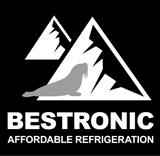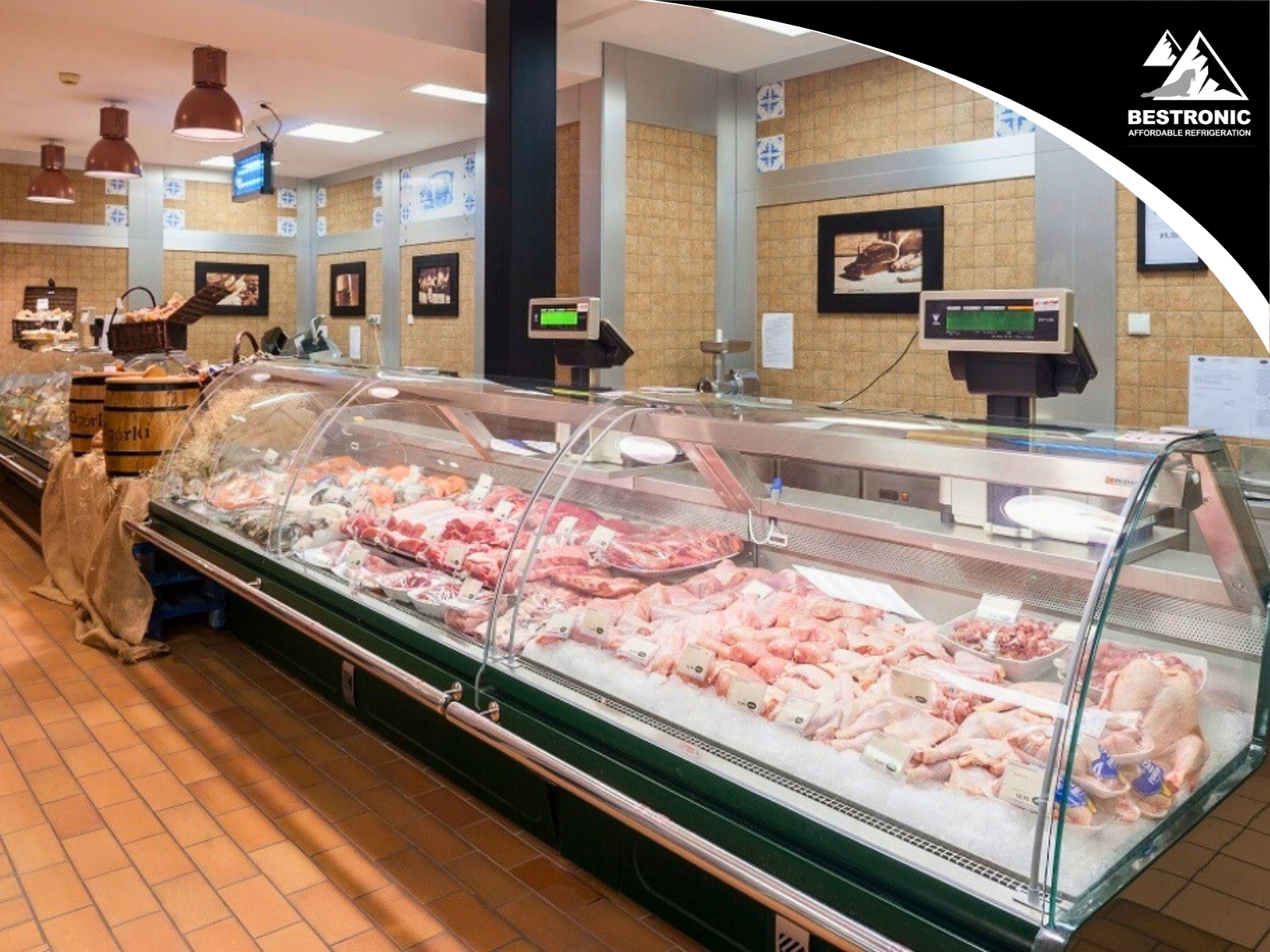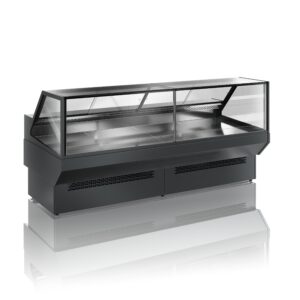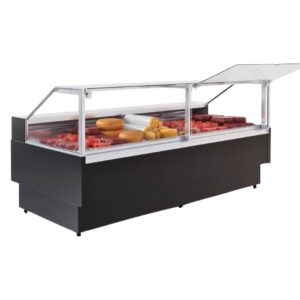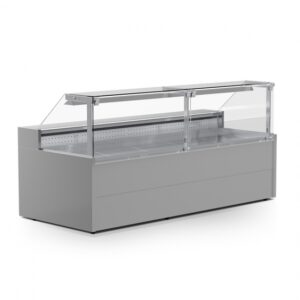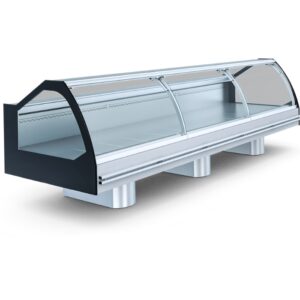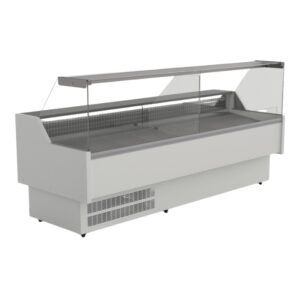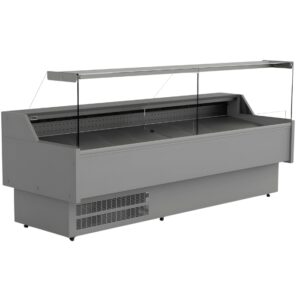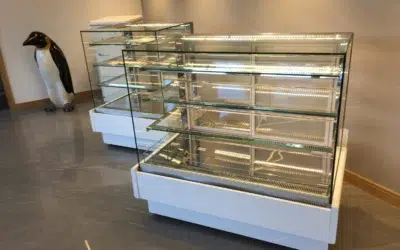Maintaining the freshness and safety of meat products is a top priority for butchers, meat processing facilities, and retailers across the UK. Adhering to strict UK meat storage regulations isn’t just a legal requirement—it’s essential for ensuring quality, preventing contamination, and protecting your reputation. In this comprehensive guide, we’ll explore everything you need to know about food safety regulations, choosing the right refrigeration solutions, and implementing best practices for hygiene and maintenance in your butcher shop.
Content Page
- Understanding UK Meat Storage Regulations
- Importance of High-Quality Refrigeration Units
- Best Practices for Hygiene and Maintenance
Meat Storage & Hygiene Regulations for Butchers in the UK: A Guide to Compliance and Best Practices
Understanding UK Meat Storage Regulations
Ensuring the safe storage of meat is a top priority in the food industry. In the UK, meat storage and hygiene standards are strictly regulated to prevent foodborne illnesses and maintain high levels of public health. These regulations are enforced by key organisations, including the Food Standards Agency (FSA) and local Environmental Health Departments.
Food Safety Regulations in the UK
The Food Standards Agency (FSA) is the main regulatory body overseeing food safety across the UK. It establishes guidelines for food hygiene, conducts inspections, and provides clear regulations for meat storage, preparation, and display.
The FSA is responsible for:
- Setting national food safety standards.
- Monitoring meat processing and retail facilities for compliance.
- Providing clear guidelines on temperature control, cross-contamination prevention, and cleanliness.
- Conducting regular inspections to ensure that food businesses meet legal obligations.
On a local level, Environmental Health Officers (EHOs) are tasked with:
- Carrying out on-site inspections of butcher shops and meat processing facilities.
- Ensuring that storage conditions meet the required hygiene standards.
- Investigating food safety complaints and taking corrective actions when necessary.
The Role of HACCP in Meat Storage
One of the fundamental frameworks for maintaining food safety in the UK is HACCP (Hazard Analysis and Critical Control Point). This system is a preventive approach that focuses on identifying and controlling potential hazards in food production, storage, and handling.
HACCP Principles for Meat Storage:
- Hazard Analysis: Identify potential hazards related to meat storage, such as bacterial contamination, cross-contamination, and temperature abuse.
- Critical Control Points (CCPs): Determine the stages in the storage and handling process where hazards can be prevented, eliminated, or reduced to safe levels. Common CCPs for meat storage include refrigeration temperature control and hygiene practices.
- Critical Limits: Establish acceptable limits for each CCP (e.g., meat must be stored at or below +4°C to prevent bacterial growth).
- Monitoring Procedures: Implement regular checks to ensure that critical limits are consistently met (e.g., monitoring fridge temperatures, checking cleanliness).
- Corrective Actions: Outline steps to be taken if a critical limit is not met, such as adjusting temperatures or discarding contaminated meat.
- Verification Procedures: Regularly review the HACCP plan to ensure it is effective, including routine inspections and audits.
- Record Keeping and Documentation: Maintain detailed logs of temperature checks, cleaning schedules, and any corrective actions taken.
HACCP is a legal requirement for all food businesses handling meat products in the UK. Failure to comply can result in fines, business closures, and damage to reputation.
Temperature Control: A Critical Aspect
Under UK regulations, raw meat must be stored at specific temperatures to prevent bacterial growth:
- Refrigerated Meat: Must be kept at or below +5°C. While the legal maximum for chilled storage is +8°C, it is best practice to maintain it at +5°C or lower to ensure optimal freshness and safety.
- Frozen Meat: Should be stored at -18°C or lower.
- Processed or Cooked Meats: These should also be maintained at +5°C or lower, despite the legal limit of +8°C. Adhering to the lower temperature helps prevent spoilage and maintains product quality.
Temperature control is crucial, as even slight deviations can lead to the growth of harmful bacteria such as Salmonella or E. coli, posing serious health risks to consumers.
Importance of High-Quality Refrigeration Units
Maintaining the freshness and safety of meat products is a top priority for butchers and meat retailers. Investing in high-quality refrigeration is crucial—not only to comply with UK food safety regulations but also to extend the shelf life of meat products and enhance customer confidence.
Why Quality Refrigeration Matters
Meat is highly perishable and must be stored at specific temperatures to prevent spoilage and contamination. If meat is kept outside of its ideal temperature range, bacteria such as Salmonella, Listeria, and E. coli can thrive, increasing the risk of foodborne illnesses.
Benefits of High-Quality Refrigeration:
- Consistent Temperature Control: Advanced cooling systems ensure even distribution of cold air, preventing “hot spots” where bacteria can grow.
- Extended Shelf Life: Maintaining optimal temperatures slows the growth of bacteria, extending the freshness and saleability of meat products.
- Enhanced Food Safety: Correctly stored meat reduces the risk of foodborne illnesses, keeping both customers and your business safe.
- Improved Display: Modern refrigeration solutions, such as serve-over counters and meat display fridges, are designed to showcase products attractively, encouraging sales.
Choosing the Right Refrigeration Unit for Your Butcher Shop
When selecting a refrigeration unit, consider the following:
- Space Availability: Assess the size of your shop and choose a unit that maximises space while providing ample storage.
- Product Range: Different cuts and types of meat require varying levels of refrigeration—opt for versatile units that can accommodate your entire inventory.
- Energy Efficiency: Look for units with energy-efficient technology to reduce running costs and support sustainability.
- Compliance with UK Standards: Ensure that all refrigeration units meet FSA and Environmental Health regulations for food storage.
Investing in high-quality refrigeration is a necessity for running a successful butcher shop in the UK. The right equipment guarantees that meat products are kept fresh, safe, and visually appealing for your customers.
Best Practices for Hygiene and Maintenance
Maintaining strict hygiene standards and regular maintenance is crucial for any butcher shop, to comply with UK regulations and to ensure the freshness and quality of meat products.
Regular Cleaning and Sanitising Protocols
To prevent contamination and maintain high standards of food safety, it’s essential to regularly clean and sanitise all refrigeration units, including serve-over counters and meat display fridges.
Daily Cleaning and Sanitising
To prevent contamination, it’s essential to clean and sanitise all refrigeration units, including serve-over counters and meat display fridges.
Daily Checklist:
- Clean glass surfaces, doors, and display panels with food-safe glass cleaner.
- Wipe away any spills immediately to prevent bacterial growth.
- Sanitise all stainless steel surfaces with food-safe disinfectant.
- Disinfect door handles, seals, and buttons to reduce germ spread.
- Log refrigeration temperatures daily for compliance.
Weekly Deep Cleaning
A deeper clean each week helps to maintain performance and hygiene.
Weekly Checklist:
- Deep clean shelving and interior surfaces with a food-safe disinfectant.
- Remove stock temporarily to clean inside the units, including fans and vents.
- Inspect and clean condenser coils to ensure cooling efficiency.
- Empty and clean drip trays and water collection areas to prevent stagnant water.
- Check door seals for wear and tear.
Monthly Maintenance and Inspection
Regular monthly checks help extend the life of your refrigeration units.
Monthly Checklist:
- Defrost freezers (if not automatic) to prevent ice build-up.
- Inspect door seals and gaskets for cracks or gaps.
- Calibrate thermostats to ensure correct temperature readings.
- Check for leaks in coolant lines or blockages in drainage pipes.
- Consider a professional service inspection every quarter.
Proper Storage Methods
Effective storage within your refrigeration units is key to preserving meat quality and preventing cross-contamination.
Best Practices for Meat Storage:
- Shelving Organisation: Use the top shelves for cooked or ready-to-eat meats, while raw meats are stored on the lower shelves to prevent cross-contamination.
- Separation of Products: Always store beef, pork, and poultry separately to avoid cross-contamination. Fish should also be isolated to prevent odour transfer.
- Ventilation is Key: Avoid overpacking display fridges and serve-over counters. Proper air circulation is crucial for maintaining consistent temperatures.
- Label and Date Everything: Clearly label all products with the date of storage to ensure a proper rotation of stock.
Safe and Compliant Meat Storage for Butchers
In the highly regulated UK meat industry, maintaining proper storage conditions is not just good practice, it’s the law. Investing in high-quality refrigeration units, following strict hygiene protocols, and adhering to HACCP guidelines are vital steps in ensuring both food safety and business success.
For expert advice on refrigeration solutions tailored to butcher shops, explore our Butcher Display Fridges or get in touch with our team today.
